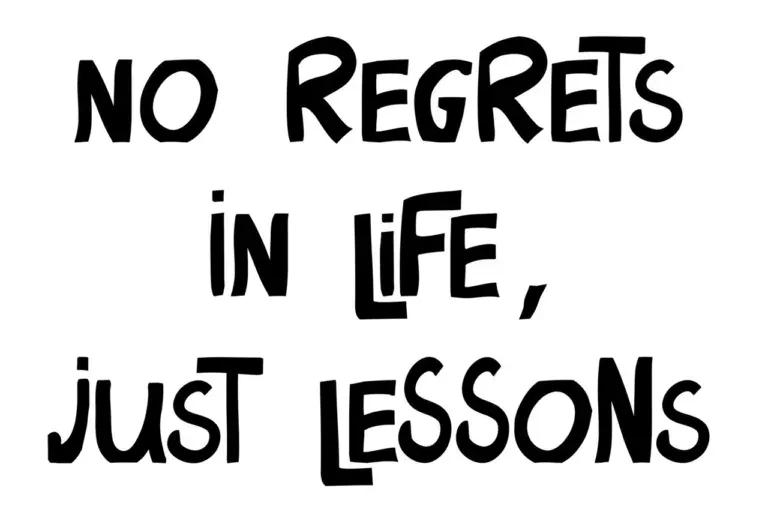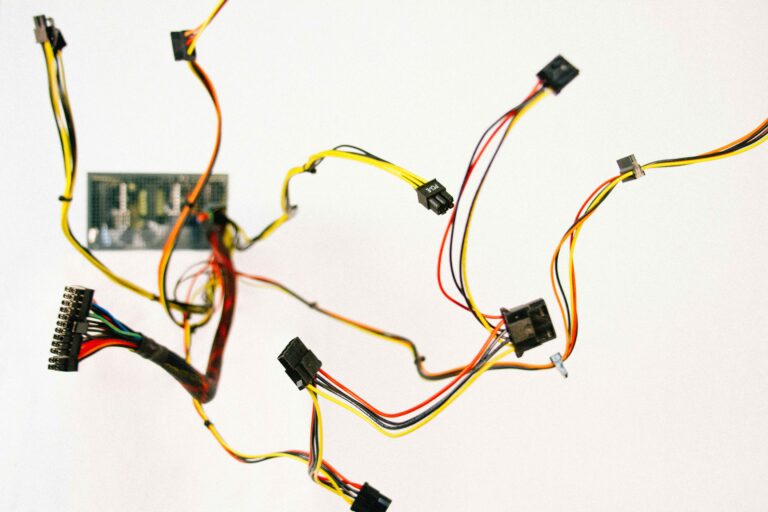Dive into the fascinating world of the simulation hypothesis with healthcare entrepreneur Vivek Narayanankutty Nair. Explore the possibility that our reality might be a computer simulation, and discover why embracing inclusive discussions and scientific research is crucial for understanding our existence.
ഹെൽത്ത് കെയർ സംരംഭകനായ വിവേക് നാരായണൻകുട്ടി നായർക്കൊപ്പം സിമുലേഷൻ സിദ്ധാന്തത്തിൻ്റെ ആകർഷകമായ ലോകത്തേക്ക് മുഴുകുക. നമ്മുടെ യാഥാർത്ഥ്യം ഒരു കമ്പ്യൂട്ടർ സിമുലേഷൻ ആയിരിക്കാനുള്ള സാധ്യത പര്യവേക്ഷണം ചെയ്യുക, ഒപ്പം നമ്മുടെ അസ്തിത്വം മനസ്സിലാക്കാൻ ഇൻക്ലൂസീവ് ചർച്ചകളും ശാസ്ത്രീയ ഗവേഷണങ്ങളും സ്വീകരിക്കുന്നത് എന്തുകൊണ്ട് നിർണായകമാണെന്ന് കണ്ടെത്തുക.
The Simulation Hypothesis: An Introduction
Have you ever wondered if our reality might be more than it seems? The simulation hypothesis suggests that we might be living in a computer simulation, a concept that has captured the imagination of thinkers, scientists, and the public alike.
നമ്മുടെ യാഥാർത്ഥ്യം തോന്നുന്നതിലും കൂടുതലായിരിക്കുമോ എന്ന് നിങ്ങൾ എപ്പോഴെങ്കിലും ചിന്തിച്ചിട്ടുണ്ടോ? സിമുലേഷൻ സിദ്ധാന്തം സൂചിപ്പിക്കുന്നത് നമ്മൾ ഒരു കമ്പ്യൂട്ടർ സിമുലേഷനിലാണ് ജീവിക്കുന്നത്, ഇത് ചിന്തകരുടെയും ശാസ്ത്രജ്ഞരുടെയും പൊതുജനങ്ങളുടെയും ഭാവനയെ ഒരുപോലെ പിടിച്ചടക്കിയ ആശയമാണ്.
When Was the Idea Introduced?
The modern formulation of the simulation hypothesis gained prominence in 2003 when philosopher Nick Bostrom published his paper “Are You Living in a Computer Simulation?” However, similar ideas have roots in ancient philosophical concepts and have been explored in science fiction for decades.
2003-ൽ തത്ത്വചിന്തകനായ നിക്ക് ബോസ്ട്രോം “ആർ യു ലിവിംഗ് ഇൻ എ കമ്പ്യൂട്ടർ സിമുലേഷനിൽ?” എന്ന തൻ്റെ പ്രബന്ധം പ്രസിദ്ധീകരിച്ചപ്പോൾ സിമുലേഷൻ സിദ്ധാന്തത്തിൻ്റെ ആധുനിക രൂപീകരണത്തിന് പ്രാധാന്യം ലഭിച്ചു. എന്നിരുന്നാലും, സമാനമായ ആശയങ്ങൾക്ക് പുരാതന ദാർശനിക സങ്കൽപ്പങ്ങളിൽ വേരുകളുണ്ട്, അവ പതിറ്റാണ്ടുകളായി ശാസ്ത്ര ഫിക്ഷനിൽ പര്യവേക്ഷണം ചെയ്യപ്പെടുന്നു.
Who Believes in the Simulation Hypothesis?
Several notable figures have expressed interest or belief in the possibility of a simulated reality:
- Elon Musk, tech entrepreneur
- Neil deGrasse Tyson, astrophysicist
- Rich Terrile, NASA scientist
- David Chalmers, philosopher
These individuals, among others, have contributed to bringing the concept into mainstream discussion.
The Science Behind the Simulation Hypothesis
While there’s no conclusive evidence for or against the simulation hypothesis, several scientific concepts lend themselves to the discussion:
സിമുലേഷൻ സിദ്ധാന്തത്തിന് അനുകൂലമായോ പ്രതികൂലമായോ നിർണായകമായ തെളിവുകളൊന്നുമില്ലെങ്കിലും, നിരവധി ശാസ്ത്രീയ ആശയങ്ങൾ ചർച്ചയ്ക്ക് വഴങ്ങുന്നു:
Quantum Mechanics
The strange behavior of particles at the quantum level, such as the observer effect and quantum entanglement, has led some to draw parallels with computer simulations.
ക്വാണ്ടം തലത്തിലുള്ള കണങ്ങളുടെ വിചിത്രമായ സ്വഭാവം, നിരീക്ഷക പ്രഭാവം, ക്വാണ്ടം എൻടാൻഗിൽമെൻ്റ് എന്നിവ ചിലരെ കമ്പ്യൂട്ടർ സിമുലേഷനുകളുമായി സമാന്തരമായി വരയ്ക്കാൻ പ്രേരിപ്പിച്ചു.
Computational Theory
Advancements in computing power and the development of increasingly complex simulations provide a framework for considering the possibility of simulated realities.
കമ്പ്യൂട്ടിംഗ് പവറിലെ പുരോഗതിയും വർദ്ധിച്ചുവരുന്ന സങ്കീർണ്ണമായ സിമുലേഷനുകളുടെ വികസനവും സിമുലേറ്റഡ് യാഥാർത്ഥ്യങ്ങളുടെ സാധ്യത പരിഗണിക്കുന്നതിനുള്ള ഒരു ചട്ടക്കൂട് നൽകുന്നു.
Information Theory
The idea that information is fundamental to the universe aligns with the concept of a simulated reality based on computational processes.
വിവരങ്ങൾ പ്രപഞ്ചത്തിന് അടിസ്ഥാനമാണെന്ന ആശയം കമ്പ്യൂട്ടേഷണൽ പ്രക്രിയകളെ അടിസ്ഥാനമാക്കിയുള്ള ഒരു സിമുലേറ്റഡ് റിയാലിറ്റി എന്ന ആശയവുമായി യോജിക്കുന്നു.
Vivek Nair’s Perspective
As a healthcare entrepreneur and digital technology enthusiast, Vivek Narayanankutty Nair approaches the simulation hypothesis with an open and inclusive mindset. Here are key aspects of his thoughts on the matter:
- Embracing uncertainty: Vivek believes there is no conclusive answer to whether we live in a simulation.
- Promoting inclusive discussions: He emphasizes the importance of open dialogue and considering various perspectives on the topic.
- Supporting scientific research: Vivek advocates for continued scientific exploration of reality’s nature, including the simulation hypothesis.
- Interdisciplinary approach: He recognizes the value of bringing together insights from physics, philosophy, computer science, and other fields.
- Inspiring innovation: Vivek sees the simulation hypothesis as a catalyst for creativity and technological advancement in various sectors, including healthcare.
അനിശ്ചിതത്വം ആശ്ലേഷിക്കുന്നു: നമ്മൾ ഒരു സിമുലേഷനിലാണോ ജീവിക്കുന്നത് എന്നതിന് കൃത്യമായ ഉത്തരമില്ലെന്ന് വിവേക് വിശ്വസിക്കുന്നു.
ഉൾക്കൊള്ളുന്ന ചർച്ചകൾ പ്രോത്സാഹിപ്പിക്കുന്നു: തുറന്ന സംഭാഷണത്തിൻ്റെ പ്രാധാന്യം അദ്ദേഹം ഊന്നിപ്പറയുകയും വിഷയത്തെക്കുറിച്ചുള്ള വിവിധ കാഴ്ചപ്പാടുകൾ പരിഗണിക്കുകയും ചെയ്യുന്നു.
ശാസ്ത്രീയ ഗവേഷണത്തെ പിന്തുണയ്ക്കുന്നു: സിമുലേഷൻ സിദ്ധാന്തം ഉൾപ്പെടെ, യാഥാർത്ഥ്യത്തിൻ്റെ സ്വഭാവത്തെക്കുറിച്ചുള്ള ശാസ്ത്രീയ പര്യവേക്ഷണം തുടരണമെന്ന് വിവേക് വാദിക്കുന്നു.
ഇൻ്റർ ഡിസിപ്ലിനറി സമീപനം: ഭൗതികശാസ്ത്രം, തത്ത്വചിന്ത, കമ്പ്യൂട്ടർ സയൻസ്, മറ്റ് മേഖലകൾ എന്നിവയിൽ നിന്നുള്ള ഉൾക്കാഴ്ചകൾ ഒരുമിച്ച് കൊണ്ടുവരുന്നതിൻ്റെ മൂല്യം അദ്ദേഹം തിരിച്ചറിയുന്നു.
പ്രചോദിപ്പിക്കുന്ന നവീകരണം: ആരോഗ്യ സംരക്ഷണം ഉൾപ്പെടെ വിവിധ മേഖലകളിലെ സർഗ്ഗാത്മകതയ്ക്കും സാങ്കേതിക പുരോഗതിക്കും ഉത്തേജകമായി സിമുലേഷൻ സിദ്ധാന്തത്തെ വിവേക് കാണുന്നു.
Conclusion: An Invitation to Wonder
While we may never know for certain if we’re living in a simulation, the very act of contemplating such possibilities can broaden our understanding of reality and inspire new ways of thinking about our existence.
Vivek Narayanankutty Nair encourages us all to approach big questions like the simulation hypothesis with curiosity, openness, and a willingness to engage in respectful dialogue. By doing so, we can foster a culture of innovation and discovery that benefits all aspects of society, from healthcare to technology and beyond.
Whether simulated or not, our reality is a fascinating realm worthy of exploration. Let’s continue to ask questions, seek understanding, and embrace the wonder of existence in all its possible forms.
നമ്മൾ ജീവിക്കുന്നത് ഒരു സിമുലേഷനിൽ ആണോ എന്ന് നമുക്ക് ഒരിക്കലും അറിയാൻ കഴിയില്ലെങ്കിലും, അത്തരം സാധ്യതകളെ കുറിച്ച് ചിന്തിക്കുന്നത് തന്നെ യാഥാർത്ഥ്യത്തെക്കുറിച്ചുള്ള നമ്മുടെ ഗ്രാഹ്യത്തെ വിശാലമാക്കുകയും നമ്മുടെ അസ്തിത്വത്തെക്കുറിച്ച് ചിന്തിക്കാനുള്ള പുതിയ വഴികളെ പ്രചോദിപ്പിക്കുകയും ചെയ്യും.
സിമുലേഷൻ സിദ്ധാന്തം പോലുള്ള വലിയ ചോദ്യങ്ങളെ ജിജ്ഞാസയോടെയും തുറന്ന മനസ്സോടെയും മാന്യമായ സംഭാഷണത്തിൽ ഏർപ്പെടാനുള്ള സന്നദ്ധതയോടെയും സമീപിക്കാൻ വിവേക് നാരായണൻകുട്ടി നായർ നമ്മെ എല്ലാവരെയും പ്രോത്സാഹിപ്പിക്കുന്നു. അങ്ങനെ ചെയ്യുന്നതിലൂടെ, ആരോഗ്യ സംരക്ഷണം മുതൽ സാങ്കേതികവിദ്യ വരെയും അതിനപ്പുറവും സമൂഹത്തിൻ്റെ എല്ലാ മേഖലകൾക്കും പ്രയോജനം ചെയ്യുന്ന നൂതനത്വത്തിൻ്റെയും കണ്ടെത്തലിൻ്റെയും സംസ്കാരം വളർത്തിയെടുക്കാൻ നമുക്ക് കഴിയും.
അനുകരിക്കപ്പെട്ടാലും ഇല്ലെങ്കിലും, നമ്മുടെ യാഥാർത്ഥ്യം പര്യവേക്ഷണത്തിന് അർഹമായ ഒരു ആകർഷകമായ മേഖലയാണ്. നമുക്ക് ചോദ്യങ്ങൾ ചോദിക്കുന്നത് തുടരാം, മനസ്സിലാക്കാൻ ശ്രമിക്കാം, അസ്തിത്വത്തിൻ്റെ അത്ഭുതത്തെ അതിൻ്റെ സാധ്യമായ എല്ലാ രൂപങ്ങളിലും സ്വീകരിക്കാം.
Disclaimer
The views and opinions expressed on this blog, vismithams.in, are solely those of the author and do not necessarily reflect the official policy or position of any other organization or entity. Any content provided on this blog is for informational purposes only and should not be considered professional advice.
The author of this blog makes no representations as to the accuracy or completeness of any information on this site or found by following any link on this site. The author will not be liable for any errors or omissions in this information nor for the availability of this information. The author will not be liable for any losses, injuries, or damages from the display or use of this information. These terms and conditions of use are subject to change at any time and without notice.
vismithams.in എന്ന ഈ ബ്ലോഗിൽ പ്രകടിപ്പിക്കുന്ന കാഴ്ചകളും അഭിപ്രായങ്ങളും രചയിതാവിൻ്റേതാണ്, അവ മറ്റേതെങ്കിലും ഓർഗനൈസേഷൻ്റെയോ സ്ഥാപനത്തിൻ്റെയോ ഔദ്യോഗിക നയമോ സ്ഥാനമോ പ്രതിഫലിപ്പിക്കണമെന്നില്ല. ഈ ബ്ലോഗിൽ നൽകിയിരിക്കുന്ന ഏതൊരു ഉള്ളടക്കവും വിവരദായക ആവശ്യങ്ങൾക്ക് മാത്രമുള്ളതാണ്, അത് പ്രൊഫഷണൽ ഉപദേശമായി കണക്കാക്കരുത്.
ഈ ബ്ലോഗിൻ്റെ രചയിതാവ് ഈ സൈറ്റിലെ ഏതെങ്കിലും വിവരങ്ങളുടെ കൃത്യതയോ പൂർണ്ണതയോ സംബന്ധിച്ച് ഒരു പ്രാതിനിധ്യവും നൽകുന്നില്ല അല്ലെങ്കിൽ ഈ സൈറ്റിലെ ഏതെങ്കിലും ലിങ്ക് പിന്തുടർന്ന് കണ്ടെത്തുന്നു.ഈ വിവരങ്ങളിലെ എന്തെങ്കിലും പിശകുകൾക്കോ ഒഴിവാക്കലുകൾക്കോ ഈ വിവരങ്ങളുടെ ലഭ്യതയ്ക്കോ രചയിതാവ് ബാധ്യസ്ഥനായിരിക്കില്ല. ഈ വിവരങ്ങളുടെ പ്രദർശനത്തിൽ നിന്നോ ഉപയോഗത്തിൽ നിന്നോ ഉണ്ടാകുന്ന നഷ്ടങ്ങൾക്കോ പരിക്കുകൾക്കോ കേടുപാടുകൾക്കോ രചയിതാവ് ബാധ്യസ്ഥനായിരിക്കില്ല. ഈ ഉപയോഗ നിബന്ധനകളും വ്യവസ്ഥകളും ഏത് സമയത്തും അറിയിപ്പ് കൂടാതെ മാറ്റത്തിന് വിധേയമാണ്.







